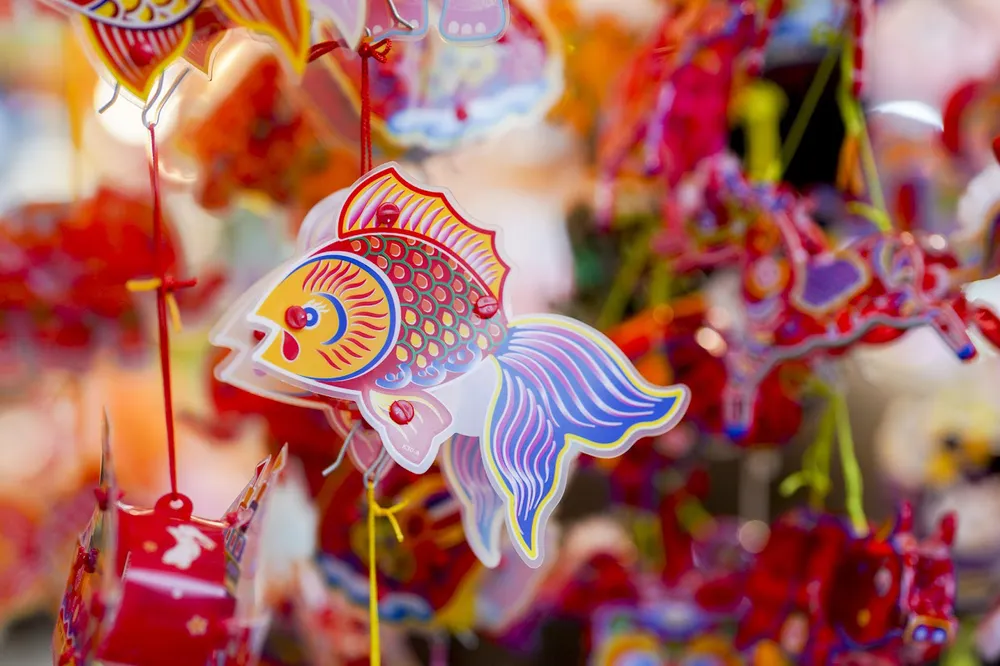
There were streaks across the treetops, and streaks along the yard with flickering candlelight. Those were the candlelights from the traditional Mid-Autumn lanterns I had made the day before. Memories suddenly flowed back into my heart.
I remember the days when electricity had not yet come to the village, the moon was bright and clear. The kind of light that had not yet been exposed to the dust of the city, not yet flickered by countless street lamps and towering buildings. The moon became the only light hanging high above, illuminating the way home after the nights of water-draining by parents. The moon guided the children to play tag, dyeing the laughter in childhood memories.
In my memory, the reunion moon was as round as a honey-coated mooncake. The kind of mooncake that was still steaming fresh from the oven, placed on the altar on the full moon day of the eighth lunar month by my mother, along with a pot of hot lotus-scented tea. Under the moonlight, my father whittled some bamboo sticks to make a five-pointed star lantern. We sat side by side, one gluing glue, the other playing with red cellophane.
Sometimes, in a gap of absent-mindedness – the absent-mindedness of children who can never concentrate for more than five minutes – I look up at the moon. Through fairy-tale eyes, I draw the Moon, Cuoi, and the banyan tree. The drawing is colored by the moonlight, then stored up high up in the sky, and I can never retrieve it to look at it again. Time flows like a one-way stream, far and far away.
The season of looking up at the moon was often interrupted by a few rains. The cold rains blew across the windows, hurried and noisy. The candles that we children called candles flickered as if about to go out in the lamp our father had made the day before. We all ran to hide under the wide porch of the neighbor's house, looking up at the moon, the rain splashed on our little heads.
Then the sound of lion dance drums resounded, the small village lion dance troupe was like a lantern procession, just a few kids playing to enjoy the moon. Adults supported the spirit by hanging packages of sweets at reach. Lantern processions like me supported by clapping and cheering. The rain stopped, the moon climbed to the top. The sound of lion dance drums resounded in the distance, followed by a long string of homemade lanterns.
The moon is no longer the only light, the Mid-Autumn Festival is gradually losing its small faces. I can only recognize Mid-Autumn Festival through the mooncake stalls along the street. I stopped at a stall, bought a box of mooncakes, and placed it on my father’s altar. For ten years now, my mother has not baked mooncakes, and my father has not sat down to whet bamboo to make lanterns.
Some people are now old and weak, some are smiling behind the incense burner with billowing smoke. The scene is gone, the people are gone, even the moon is dimmed behind the clouds. Is it true that when something is lost, people paint more bright things when they remember it? Is the moon still the same, only people no longer look up at it like in the old days?
In the nights of longing, I suddenly want to look up at the moon. Human faces, the moon, the faces of memories. I want to return to the Mid-Autumn Festival night of a distant time, sitting next to my father making lanterns, holding my mother's shirt to whine for mooncakes smeared with honey.
August comes, autumn comes, the season of looking up at the moon comes gently...
Source: https://www.sggp.org.vn/mua-ngua-mat-trong-trang-post816399.html





![[Photo] Opening of the 13th Conference of the 13th Party Central Committee](https://vphoto.vietnam.vn/thumb/1200x675/vietnam/resource/IMAGE/2025/10/6/d4b269e6c4b64696af775925cb608560)


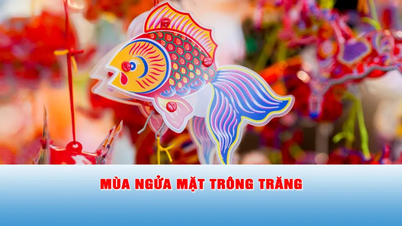
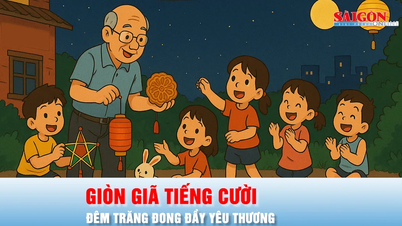
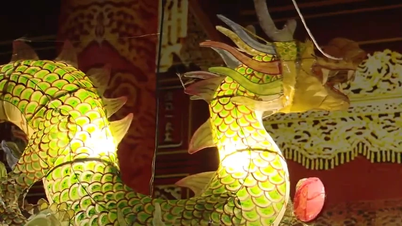



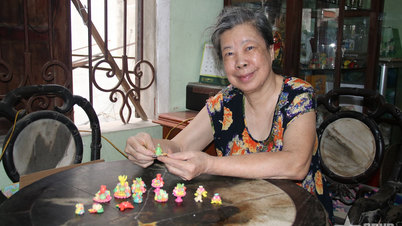

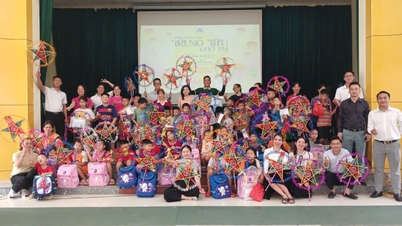

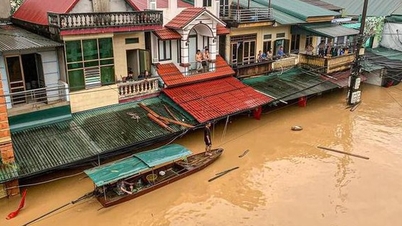



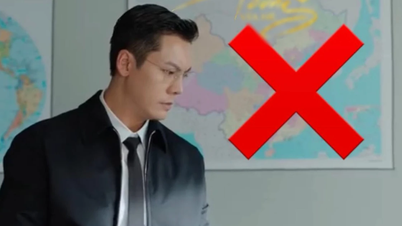
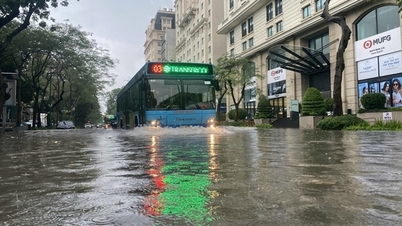






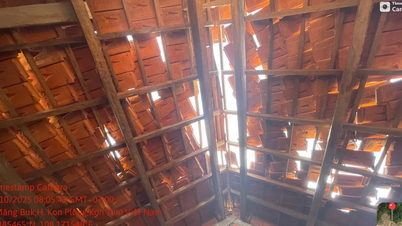

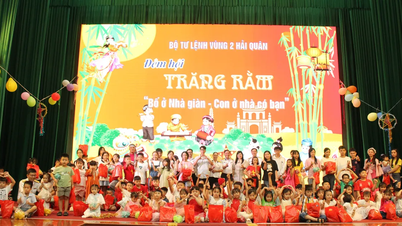


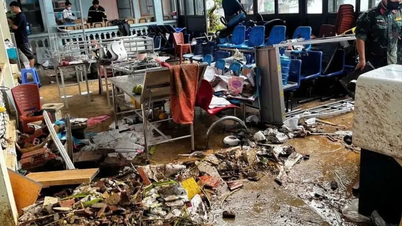












































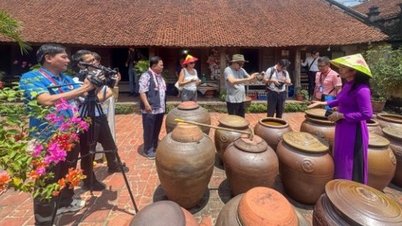
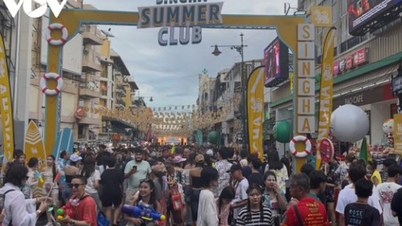

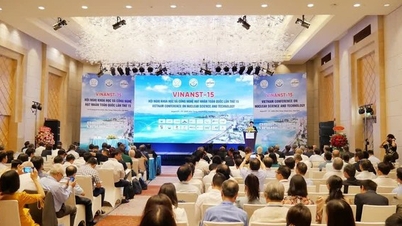

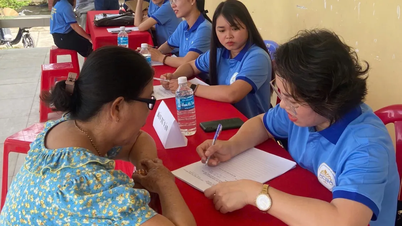


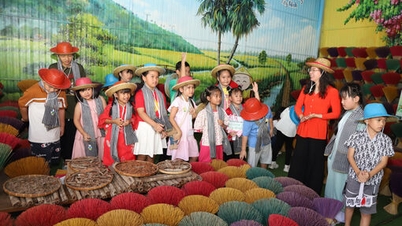

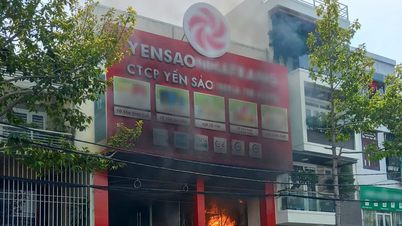

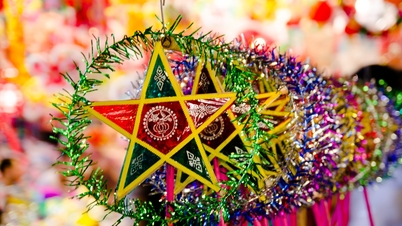













Comment (0)